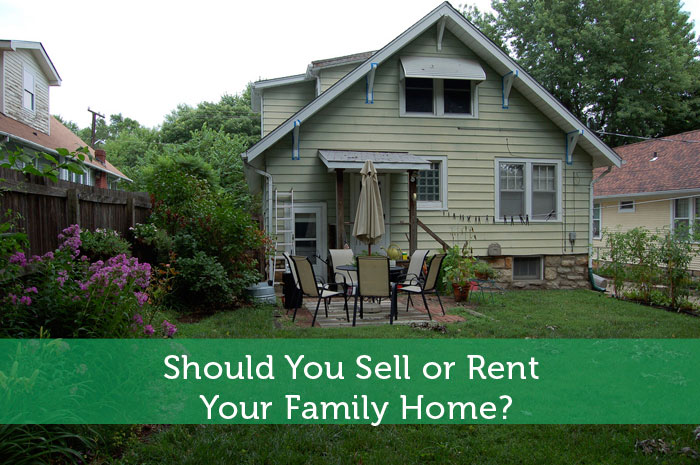If it’s finally time to say goodbye to the family home, some hard decisions need to be made. Chief among them is deciding whether to sell it and use the funds to buy a new home more in line with your needs or turn it into a rental property and generate a potential second income stream. While some may find it easier than others to arrive at an answer, there are many things to consider when pondering this question. Here are a few factors to bear in mind.
Financial Feasibility
The easiest way to know which scenario is more financially viable is to speak to a professional like a real estate agent. Obviously, you want someone who really knows what they’re talking about when it comes to renting or selling houses, so use sites like Local Agent Finder to find someone with a suitably impressive track record. Alternatively, draw up a comprehensive budget for both scenarios that weighs the costs of selling or renting against the cost of you renting or buying somewhere to live in the meantime.
Letting Go
Some people are far less sentimental than others and, for those people, selling or renting out the family home is something they wouldn’t think twice about. But those who are more sentimental may have a harder time letting go of the old homestead. Having trouble reconciling your fond memories with the thought of someone else living in your home isn’t a bad thing, but you do need to be sure one way or the other to avoid any potentially destructive financial decisions.
Demand
Before putting the house on either market, you should be doing your homework, finding out about what the rental or buyer demand for a house like yours in your area is. What sort of prices are houses like yours going for if they’re selling? What sort of tenants does your area attract? These are all things you’re going to need to know for sure before moving ahead, and it’s information your real estate agent can help you collate.
Growth
By the same token, it makes sense to look forward as well. Where is the market in your area going? Obviously, there isn’t an iron-clad guarantee that any forecast will pan out, but if the market looks like it can keep its head above water, this might be a good indication you should hold onto your home to avoid losing out on any future capital gains. If, however, the market looks like it’s going to peak, you’re probably better off selling up.
Being a Landlord
If you do decide to turn your family home into a rental property, this is a big commitment. It’s then your responsibility to maintain a resource pool that will cover any repairs, and pay tradespeople to do the repairs, as well as any rental agents, tax and legal advisors or accountants involved. The reason for this is that the property will likely be negatively geared – this means the rent earned won’t cover all of the holding and operational costs.
Finally, you should trust your instincts. Take a moment to think about what works for you and what makes the best sense financially. If you can find a place where you’re secure emotionally as well as financially, you’ll be well on the way to picking the best possible option for you and your family.






For me, I would rather rent my home than selling it. For me, letting go is really hard, especially if you have lots of memories on your home.
Personal situation is a big factor in decision making. I would prefer to rent my family as I know how profitable it is compared with selling it.
I choose to rent it rather selling. I agree with the comments above that it’s really hard to let go your family home when its very valuable and lots of good memories you made there.
It appears that many would rather rent it but most don’t know what it’s like being a landlord, especially in places like Ontario where landlords essentially have no rights. A tenant can occupy ones property for 6 months before they’re evicted, the process is very slow. Pro renters know how to game the system and more and more of them are appearing.
Real estate agents are not necessarily the right resource for selecting tenants – with some exceptions, of course. Don’t go into the landlord business without good education and competent legal advice. Or watch a day of eviction hearings for a wake up call to the potential pitfalls. One bad tenant could spell disaster for a small landlord.
Critical to this analysis are the tax implications of keeping the property and buying a second one, which is what is most often considered.
A family likes the place so much, they want to continue to own it. The trouble is that the next place they want to buy to live in while they rent their old place requires a mortgage, the interest on which will not be tax deductible.
They should consider the tax implications of selling, remortgaging and/or buying all cash if possible. But the tax issues are problematic.